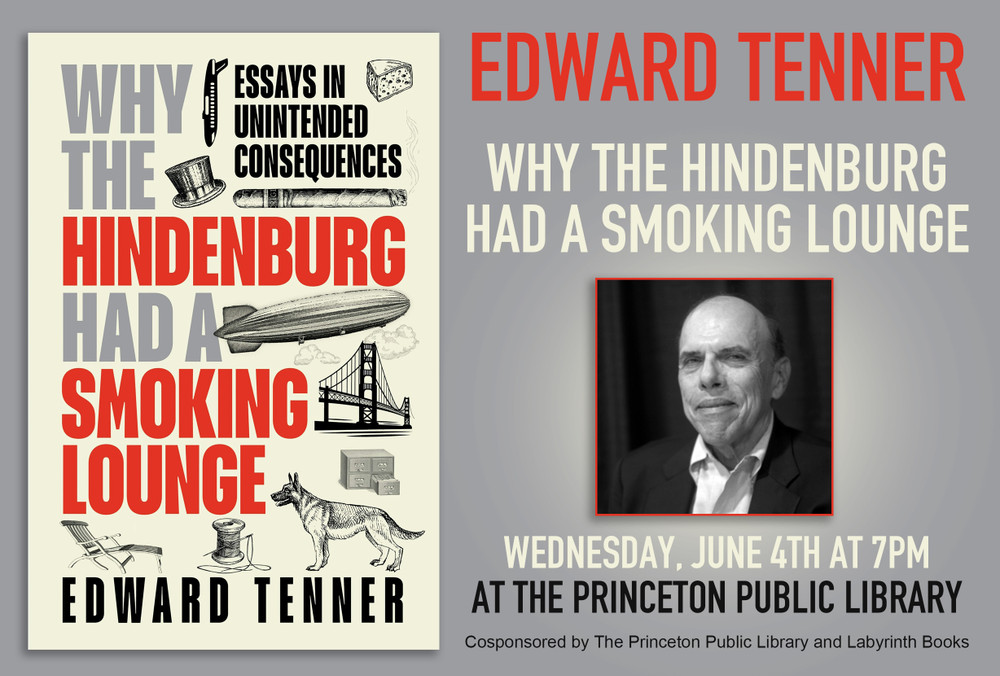Edward Tenner: "Why the Hindenburg Had a Smoking Lounge: Essays in Unintended Consequences," A Library and Labyrinth Collaboration
Jun 4th 2025
Events @ Princeton Public Library
Wednesday 6/4 @ 7:00pm
Princeton Public Library
Essays by international bestselling author Edward Tenner that explore the surprises of human ingenuity
How did the addition of lifeboats after the Titanic shipwreck contribute to another tragedy in Chicago harbor three years later? How efficient are wild animals as investors, and how do dog breeds become national symbols? Why have scientific breakthroughs so often originated in the study of shadows? Why have Amish artisans played an important role in manufacturing advanced technology? Surprises like these, Edward Tenner believes, can help us deal with the technological issues that confront us now.
Since the 1980s, Edward Tenner has contributed essays on technology, design, and culture to leading magazines, newspapers, and professional journals, and has been interviewed on subjects ranging from medical ethics to typography. Why the Hindenburg Had a Smoking Lounge—named for one of the paradoxes that can result from the inherent contradictions between consumer safety and product marketing—brings many of Tenner’s essays together into one volume for the first time, accompanied by new introductions by the author on the theme of each work. As an independent historian and public speaker, Tenner has spent his career deploying concepts from economics, engineering, psychology, science, and sociology, to explore both the negative and positive surprises of human ingenuity.
Edward Tenner is a Distinguished Scholar of the Smithsonian’s Lemelson Center. He holds a Ph.D. in history from the University of Chicago and has been a Junior Fellow of the Harvard Society of Fellows and a John Simon Guggenheim Fellow. A former executive editor for physical science and history at Princeton University Press, he has been a visiting lecturer in the Humanities Council and a visitor in the Princeton departments and programs of Geosciences, English, Sociology, and Information Technology Policy, as well as in the Institute for Advanced Study and the Woodrow Wilson International Center for Scholars. His books include Why Things Bite Back: Technology and the Revenge of Unintended Consequences; Our Own Devices: How Technology Remakes Humanity; and The Efficiency Paradox: What Big Data Can’t Do.
This event is cosponsored by The Princeton Public Library and Labyrinth Books.

